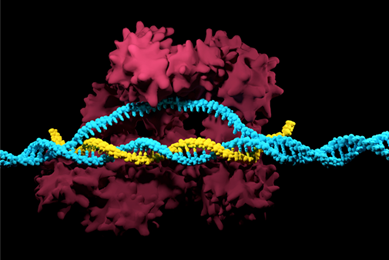Featuring Birgitt Schüle, MD Associate Professor, Department of Pathology, Stanford University School of Medicine
Show Notes:
Guest:
Birgitt Schüle, MD
Associate Professor, Department of Pathology, Stanford University School of Medicine
Birgitt Schüle, MD, is an Associate Professor in the Department of Pathology at Stanford University School of Medicine. Her research focuses on medical genetics and stem cell modeling to uncover disease mechanisms and pathways involved in neurodegeneration in Parkinson's disease and related disorders. She is dedicated to developing novel therapeutic strategies that contribute to the advancement of precision medicine.
Dr. Schüle received her medical training from the Georg-August University Göttingen and Medical University Lübeck, Germany, during between 1993 and 2001. In 2001, she obtained her doctoral degree in medicine (Dr. med.) from the Georg-August University Göttingen in neurophysiology. Following, from 2001 to 2002, she completed her neurology internship at the Medical University of Lübeck, where she was mentored by Prof. Christine Klein in neurogenetics of Parkinson’s disease and dystonia syndromes. Continuing, Dr. Schüle pursued a postdoctoral fellowship in human genetics at Stanford University School of Medicine from 2003 to 2005, under the guidance of Prof. Uta Francke.
Between 2005 and 2019, Dr. Schüle built and led critical clinical research programs and establishing biospecimen and cell line repositories in the fields of neurogenetics, translational stem cell research, and brain donation at the Parkinson's Institute and Clinical Center.
Dr. Schüle serves as Associate Core Leader, Neuropathology, within the Stanford Alzheimer Research Center (ADRC). Within this role, she has made significant contributions to the ADRC, particularly in genetic characterization, biobanking, and the establishment of a human induced pluripotent stem cell and post-mortem leptomeninges tissue bank. These resources are made accessible to the scientific community through repositories at the National Institutes of Health (NIH), thereby promoting collaborative research.
Dr. Schüle's expertise in the field of neurodegeneration have been instrumental in advancing medical knowledge. She is highly regarded within the scientific community for her significant contributions and plays an essential role in the pursuit of effective treatments and precision medicine approaches for neurodegenerative conditions.
Host:
David Yarmosh, MS
Lead Bioinformatician, ATCC
David Yarmosh is a senior bioinformatician in ATCC’s Sequencing and Bioinformatics Center. He’s a graduate of New York University’s Tandon School of Engineering. He has been working in large data aggregation and analysis since 2013 and microbial genomics with a focus on biosurveillance R&D efforts since 2016. David has led international training exercises in Peru and Senegal, sharing metagenomic analytical capabilities. His interests include genomics database construction, metadata collection, drug resistance mechanisms, bioinformatics standards, and machine learning. Since joining ATCC in 2020, he has helped develop the podcast Behind the Biology, which he now hosts.
References
- Singleton A.B., et al. Alpha-synuclein locus triplication causes Parkinson’s disease. Science 302, 841 (2003).
- Zafar, F. et al. Genetic fine-mapping of the Iowan SNCA gene triplication in a patient with Parkinson's disease. NPJ Parkinsons Dis 4, 18 (2018).
- Mittal, S. et al. beta2-Adrenoreceptor is a regulator of the alpha-synuclein gene driving risk of Parkinson's disease. Science 357, 891-898 (2017).
- Oliveira, L.M. et al. Elevated alpha-synuclein caused by SNCA gene triplication impairs neuronal differentiation and maturation in Parkinson's patient-derived induced pluripotent stem cells. Cell Death Dis 6, e1994 (2015).
- Flierl, A. et al. Higher vulnerability and stress sensitivity of neuronal precursor cells carrying an alpha-synuclein gene triplication. PLoS One 9, e112413 (2014).
- Chung, C.Y. et al. Identification and rescue of alpha-synuclein toxicity in Parkinson patient-derived neurons. Science 342, 983-7 (2013).
- Mak, S.K., Tewari, D., Tetrud, J.W., Langston, J.W. & Schüle, B. Mitochondrial Dysfunction in Skin Fibroblasts from a Parkinson’s Disease Patient with an alpha-Synuclein Triplication. Journal of Parkinson's disease 1, 175-183 (2011).
- Byers, B. et al. SNCA triplication Parkinson's patient's iPSC-derived DA neurons accumulate alpha-synuclein and are susceptible to oxidative stress. PLoS One 6, e26159 (2011).
- Zafar, F., Nallur Srinivasaraghavan, V., Yang Chen, M., Alejandra Morato Torres, C. & Schüle, B. Isogenic human SNCA gene dosage induced pluripotent stem cells to model Parkinson's disease. Stem Cell Res 60, 102733 (2022).
Explore our featured resources
Accelerating Breakthroughs in Parkinson’s Disease Research
Read this first of three interviews to learn about the cell models made available through our collaboration with The Michael J. Fox Foundation for Parkinson's Research.
MoreMJFF Cell Lines
ATCC has been selected by The Michael J. Fox Foundation for Parkinson’s Research (MJFF) to provide vital cell lines to academic, pharmaceutical, and biotechnology organizations committed to speed a cure for Parkinson’s disease.
More
Cell Line Engineering
Patient outcomes depend on accurate diagnostic assays. Discover why advanced biological models are essential for the development and validation of diagnostic tools.
More
